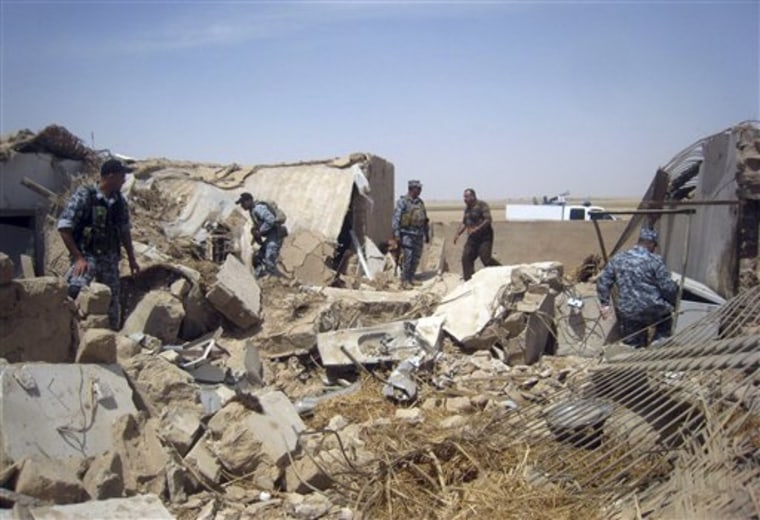Iraq's prime minister is looking to strengthen relations with neighboring Syria — while burnishing his own credentials — in a visit Wednesday aimed at easing tension between the longtime rivals.
The anticipated meeting in Damascus comes as Prime Minister Nouri al-Maliki tries to hang onto his job amid a seven-month political impasse in Baghdad that has left Iraq's government adrift.
Iraq and Syria have suffered a strained diplomacy for years, going back decades. Efforts to normalize relations suffered a blow last year, when al-Maliki accused Syria of harboring those behind deadly blasts in Baghdad that killed 101 people.
But last month, Iraqi leaders announced they would reopen their embassy in Damascus, and expected Syria to re-establish their ambassador in Baghdad.
The diplomatic thaw also helps al-Maliki present himself globally as Iraq's undisputed leader while he tries to rally enough support to form a new government — despite falling short of winning March elections.
A secular political coalition led by al-Maliki's chief rival, Ayad Allawi, won the most seats in the vote. But no single bloc won enough seats to control parliament or pick new leaders, touching off a seven-month scramble for allies that has all but ground Iraq's government to a standstill.
Al-Maliki adviser Yasin Majeed said the prime minister also plans to visit Turkey and Jordan this week. Meanwhile, Allawi and two key Sunni allies were in Saudi Arabia on Tuesday, reaching out to other Arab states for support.
Iraqi and U.S. advisers have long worried that frustration over the political impasse could yield violence, and on Tuesday, al-Qaida's umbrella group in Iraq issued threats to kidnap relatives of high-profile officials.
The Islamic State of Iraq, as the terror network's affiliate is known, said in a statement on Tuesday that it will kidnap "wives, daughters and sons" of Iraqi politicians and ministers unless the family of its slain leader, Abu Ayyub al-Masri, is freed.
The statement purported that al-Masri's wife and children have been in custody since the joint U.S.-Iraqi air and ground assault near Saddam Hussein's hometown Tikrit in April that killed al-Masri along with another prominent militant of al-Qaida in Iraq.
Authorities have reported their detention but there has been no word on their whereabouts since.
